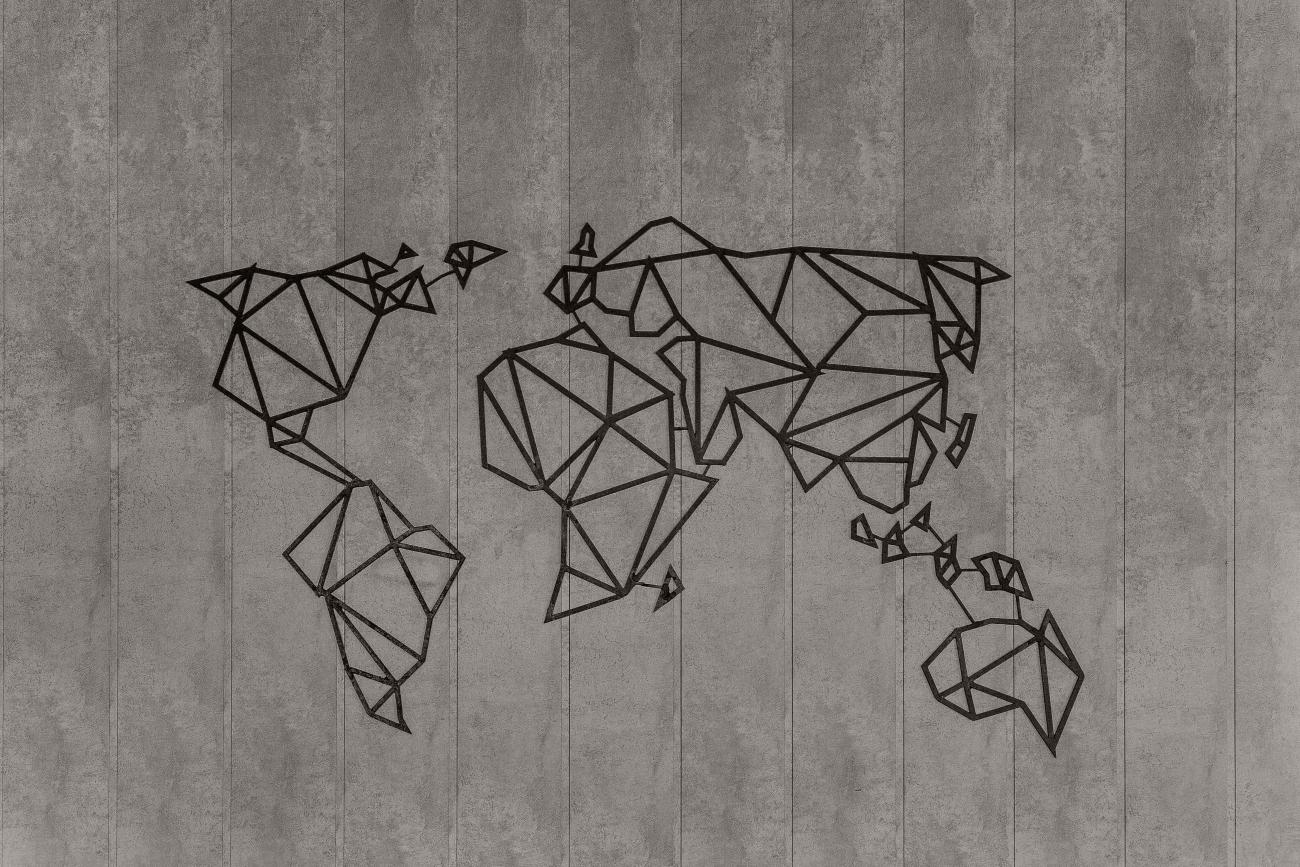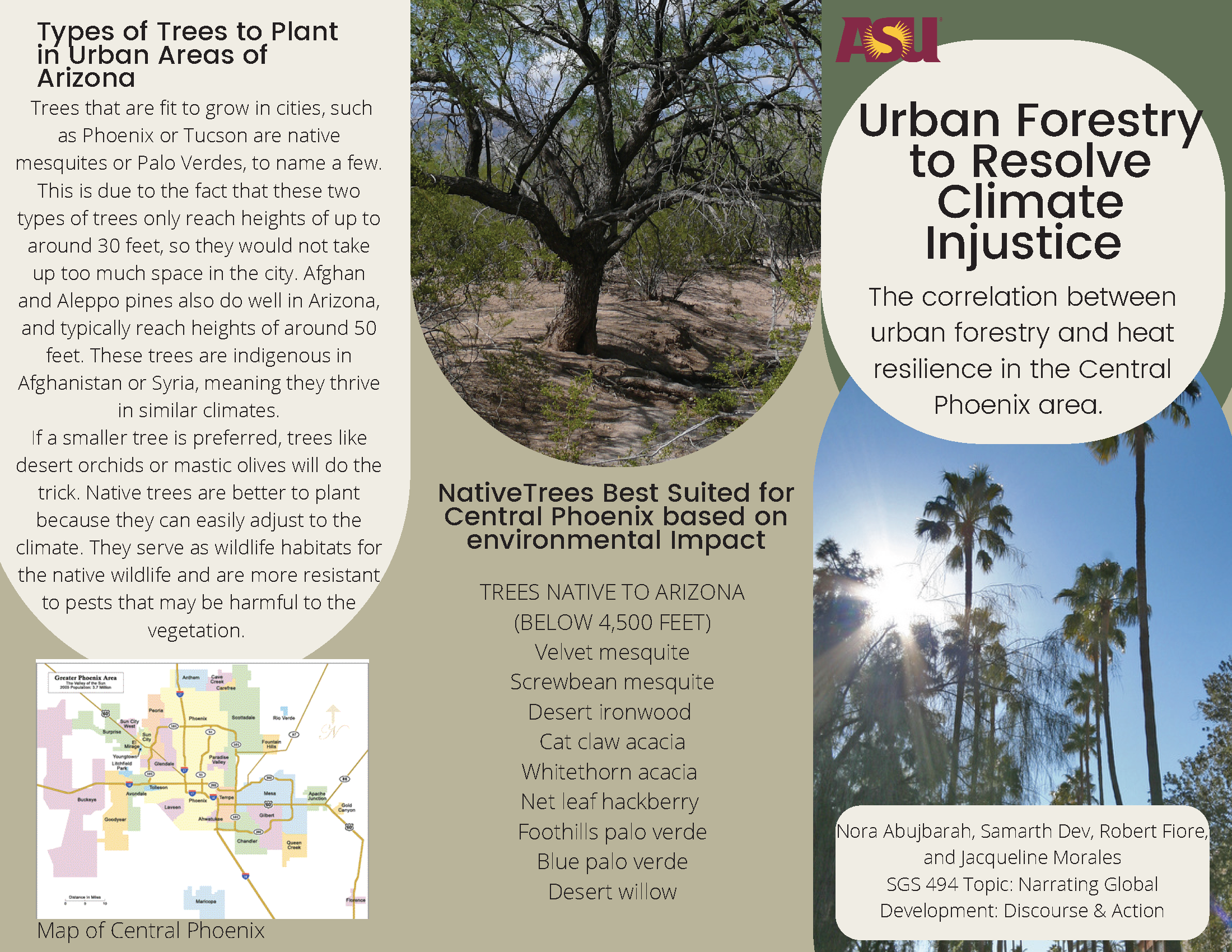
Narrating Global Development Impact Outcomes
Narrating Global Development
Students in the Narrating Global Development Lab, in partnership with faculty from the School of International Letters and Cultures and the School of the Future of Innovation in Society, in connection with ASU International Development, examined narratives of global visions and global practices across media to grasp how understandings of global development are constructed from narratives and how power structures derive from them.
Student Outcome Feature
ASU Student Perceptions of Development
One of the Narrating Global Development student teams surveyed 83 ASU students to gauge their perceptions of Arizona and global development. They then analyzed the results to understand how development is viewed at a local level and how that can translate into a generalized global perspective. View their activated presentation here.
Students in the Lab Share Their Learning Experiences
One of the traits that has been cemented in my brain was the fact that schools and the classrooms and courses by extension are cemented with a clear path of what to do and how much work is required... However, the Humanities Lab is an experience completely different from the traditional school experience, there was no beaten path... I love the fact that we as students were able to debate and throw ideas with our professors, from not just about the curriculum, but also world events unfolding around us. One of the realizations that I had was the fact that I learned how [development] is created but also exercised and for what purpose. These lessons will definitely carry with me as I develop my own opinions about international and domestic events, in order to be an active citizen in what I do and how I vote. -- Samarth Dev
I feel like this class pushed me to learn the material and apply it. The two things that really impacted me were surrounding positionality and how different development truly looks in other parts of the world. ...I have taken countless classes looking at other countries and modern practices of development. The difference in this class is the way it was applied. I feel like this was an entire[ly] new way to use my knowledge and in order to do this correctly I needed to first understand the communities in question. It is extremely difficult to use my western definition of development in a lesser developed country and this class only furthered that understanding. If I were not graduating, I would look into taking another class structured like this! -- Matthew Wepprecht
I ... felt that I learned a lot about working in small groups. I was really happy with my group as everyone contributed and worked with each other. Sometimes projects would feel daunting because I was not used to reading a rubric and not having to tackle the entire thing myself. But in the time we got started with and finished our deliverables, of course, it had not been as hard as I thought it would be because there were three other people working on it too, contributing things I never would have thought of on my own. Funny enough, this is a great example of what development can be. Different groups and people working together not competitively, but with each group contributing their strong suits and aiming to create the best work that they can as a whole. -- Natalie Scott
I appreciate how this class made us understand how history and current social policy affect what we know as Development. It is definitely a discourse that can be narrated and developed into so many ways, and how there are endless approaches is fascinating. There are so many undertones of historical, current, and moral issues that play a part in how we look at this phenomenon. My definitions of development were completely changed from the first week to the week of 'How do you define Development now?" and I think most people's would if they took the class too. -- Jonah Friedman.
I came to this class with no expectation of what I will learn or take from. Yet I would say it is one of the most exciting classes I have taken in my undergraduate program. It was fascinating to learn from first-hand accounts of people directly involved with developments. I also like how we were matched up to a small group early on. It built cohesion, and you know from early on if the group will work or not. Luckily it was a blast to work alongside Amel, Savannah, and Mario. I learned about group management and democratic decision-making. As Natalie put it, it is in many ways similar to how development works in real life. Personally, this class has built a sense of calling to work in Indonesia's development. -- Patrick Hokiarto
I had no idea when signing up for this class it would be 1) a lab, 2) have three professors, and 3) be as refreshing as it was. Being a business major, I often overlook my critical thinking skills, and neglect my interest in the humanities, and thankfully, this class reignited that spark. In a sense, it was relieving to be in a class that you didn’t just have to “get through,” it was a class where I was surrounded by students of all different backgrounds where I could learn so many different perspectives.
My initial definition of development consisted of the concepts of growth and innovation, which is an integral aspect, however, it is so much more than that.
I have never thought so critically about what development is, and how it is such a unique discourse to each country in the world. -- Quinn Stewart
Note: The views presented or expressed on this page are those of the speaker or author only and do not necessarily represent the views of Arizona State University.


